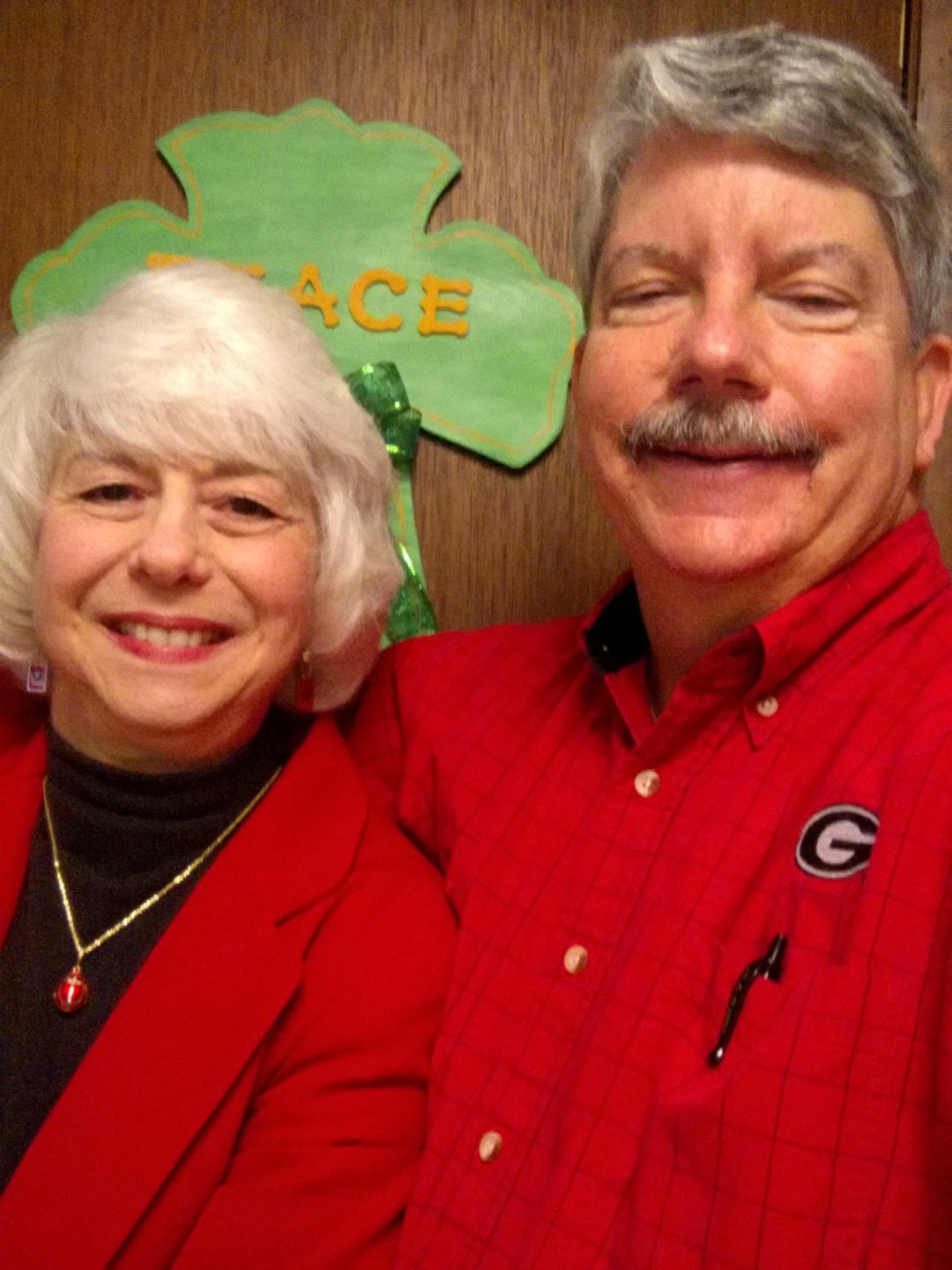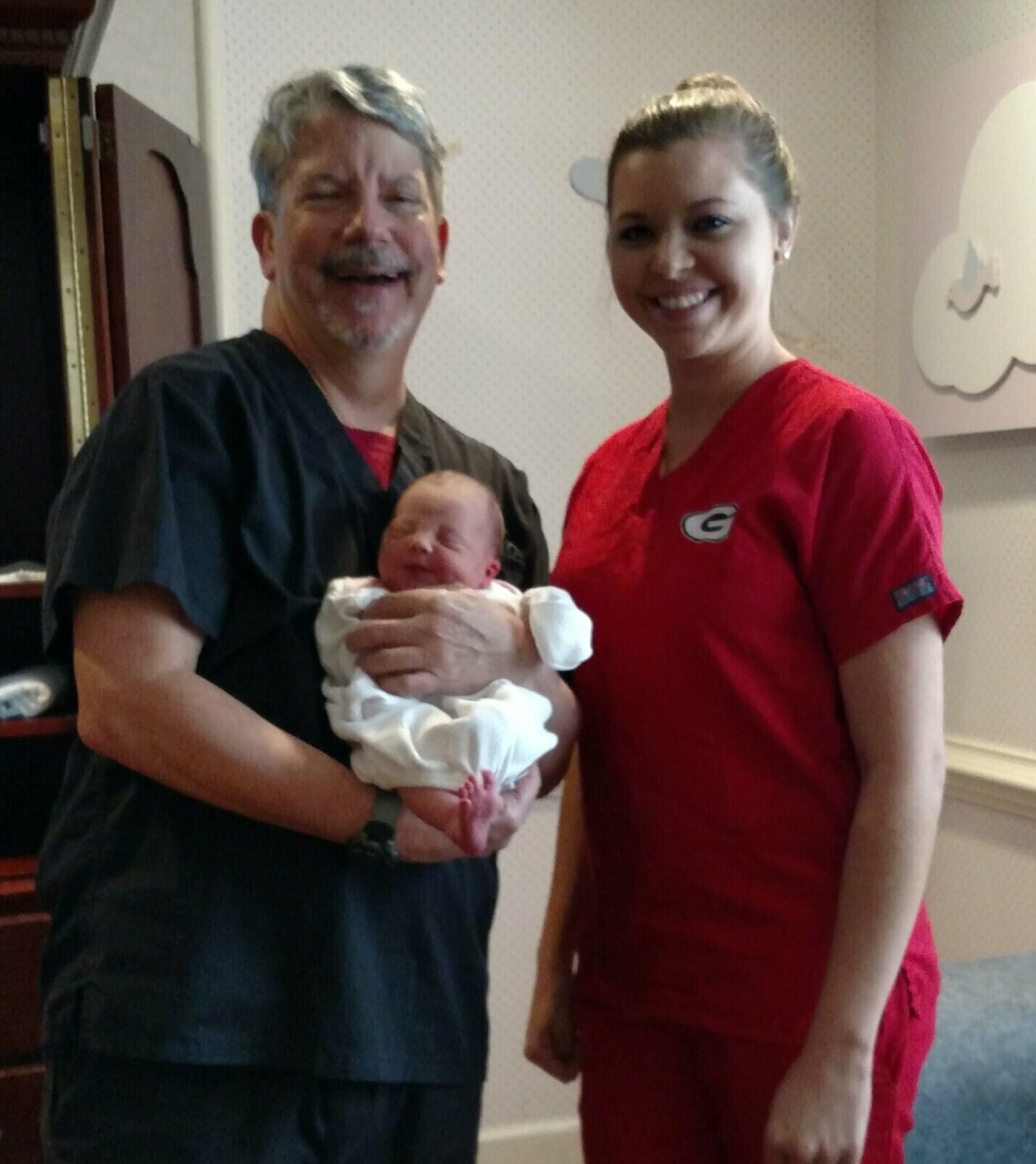Meet Dr. Robinson. Don Robinson’s Brain Story is one that tells of a highly educated and successful medical doctor who suffered a slip and fall almost 2 decades ago, and who now leads a different life after a traumatic brain injury. Did you know that it is estimated that nearly 1.5 million people suffer from a traumatic brain injury on some level every single year in the United States.
“Dr. Robinson was born in Newman, Georgia, and was raised in Macon, Georgia. He proudly attended Mercer University and graduated Magna Cum Laude with a bachelor’s degree in 1976. He went on to attend the Medical College of Georgia and graduated in 1980. From there, he and his wife Mary returned to Macon to complete his specialty residency in Obstetrics and Gynecology. Upon completion of that step he, Mary, and their young son Tal headed to the wilds of South Dakota with the Air Force. He completed his military service at Moody AFB in Valdosta, Georgia. From there, his family, now with the addition of his daughter Laura, settled down into small-town life in Bainbridge, Georgia.”
When speaking with Dr. Robinson, we asked why he wanted to share his story with our readers. He told us that for the same reasons he wrote his book Doctor Undaunted, he wanted to share his challenges, hardships, and successes after suffering concussions and a mild traumatic brain injury. His diagnosis and subsequent symptoms and struggles changed not only the way he navigated his personal life, but his professional one, too. Join us as Don tells his Brain Story.
Dr. Robinson’s Diagnosis – Concussion and Mild Traumatic Brain Injury
Dr. Robinson came across the United Brain Website while diving into TBI brain research for his book, Doctor Undaunted, and when reaching our site, was inspired by the community and support he found there. When asked why he wanted to submit his story, his heartfelt message was one that resonates with all of our Brain Story participants.
“I think it is important to share my experiences and what I have learned on my healing journey. I have aimed to shine a light so that others may benefit from learning of our commonality. I want to give hope that while it may take time, adjustments and improvements can occur.”
Don’s ambition and drive helped him accomplish many things on his path to becoming a medical professional. While completing his education and on his path to becoming a doctor, Don was also an avid runner. One evening in 2004, a night before he was scheduled to run a half marathon, Don was out to dinner. Jogging across a wooden walkway in the rain, he slipped, fell, and hit the back of his head.

In the weeks after his fall, Dr. Robinson began experiencing head and back pain and made the decision to visit a friend who was an Orthopedist. During Don’s appointment the Orthopedist, while obviously concerned about his lower back pain, was more focused on Dr. Robinson’s eyes. It was then that Don was told that the bigger concern may be the symptoms he was experiencing with his brain and skull, and was immediately referred to a neurologist.
There are a variety of classifications of traumatic brain injuries. Johns Hopkins University defines a traumatic brain injury (TBI) as “Traumatic brain injury (TBI) happens when a sudden, external, physical assault damages the brain. It is one of the most common causes of disability and death in adults. TBI is a broad term that describes a vast array of injuries that happen to the brain. The damage can be focal (confined to one area of the brain) or diffuse (happens in more than one area of the brain). The severity of a brain injury can range from a mild concussion to a severe injury that results in coma or even death.”
Life After a Traumatic Brain Injury – How Dr. Robinson Powered Through
As an esteemed physician, active runner, and loving husband and father, Dr. Robinson tells UBA that the changes he experienced in the months and years after his brain injury has been a lot to overcome.
“It was tough admitting to myself that my world had changed and that my TBI was going to persist. I was concerned about the reality of my injury, the limitations of my condition, and the unknowns of tomorrow.”
Dr. Robinson told us that the grief he experienced early on was one of his greatest struggles to overcome. “A sense of personal loss happens when you realize you can no longer perform to your past level. There are also insecurities about what’s going to happen next. After you’ve had that trauma, your ability to focus and exclude peripheral input is reduced or lost. You can’t focus directly on the road in front of you, and your focus is spread and diffused to where you can’t point your course in an accurate fashion.”. He went on to tell us that while he thinks every patient who has experienced a TBI should understand that your brain may never function the way it once did, there are a variety of therapies and treatments that can help you overcome your challenges.

What advice can you share with someone who has been diagnosed with a TBI?
“A big problem is if you get hit on the head, you might end up going to the ER and getting some stitches or get a CT scan. Hopefully, the CT scan looks normal, and you get sent home. The next step is the most challenging; over the next few weeks, you may find that you’re not functioning the way you were functioning before the injury. I want people to know that you should reach out to your primary care physician even weeks or months after, and get referred to a neurologist. Ask for help if you’re experiencing things that are not normal. Make sure to find the professional who can help reassure you and hopefully guide you on the right path. Reach out to someone in your family and let them in, they may be confused and concerned as well.”
Dr. Robinson says that his motivation for practicing medicine has always remained consistent, and while he no longer sees the same number of patients as he once did, the slower pace his brain injury symptoms require still provides him with a wonderful life. “I don’t view my life as about the losses. I have so many things to be joyful for.”. Dr. Robinson also provides space inside and outside of his practice to give support to people living life after a traumatic brain injury, which helps motivate him as well. Unfortunately, due to his physical limitations, Don no longer runs.
Treatments, Therapies, and Support
There are a variety of treatments and therapies available to patients who have suffered a TBI. From rehabilitation therapies and prescription medications, it’s best to combat your symptoms with the help of medical professionals. Dr. Robinson’s advice when it comes to noticing changes in your physical and cognitive behaviors is to seek a medical opinion as soon as possible. Dr. Robinson says “The message is that symptoms develop over three weeks to 3 months, perhaps after the concussion. It’s not really what happens the next day that determines the course, it’s what you feel a month later. The brain can usually heal itself quickly, but sometimes it doesn’t heal at all. It was essential for me to understand that my brain could continue to modify its workings, allowing me to function in a better fashion over the course of years.”
While Dr. Robinson told UBA that his TBI symptoms made engaging and experiencing the social activities he once enjoyed difficult, he’s learned to manage his symptoms as time goes on. As his brain heals and those neurological connections redevelop, he continues to find ways to help him adapt to his limitations.
“I try to set boundaries around me; I try to maintain a steady routine, keeping things in their same locations and controlling my environment as much as possible. I tell others experiencing TBI that knowledge alleviates fear – the more you can learn about TBI, the better prepared you are to deal with it.”
At the United Brain Association, we strive to raise awareness for and fund promising research to help find cures for brain disorders and diseases worldwide. For the latest updates, news, events, and information the United Brain Association is supporting, please sign up for our newsletter. For more information on submitting your Brain Story, please visit our Brain Story page, here. Together, through the support of community and donation-funded research, we’ll find a cure.
You Are Not Alone
For you or a loved one to be diagnosed with a brain or mental health-related illness or disorder is overwhelming, and leads to a quest for support and answers to important questions. UBA has built a safe, caring and compassionate community for you to share your journey, connect with others in similar situations, learn about breakthroughs, and to simply find comfort.

Make a Donation, Make a Difference
We have a close relationship with researchers working on an array of brain and mental health-related issues and disorders. We keep abreast with cutting-edge research projects and fund those with the greatest insight and promise. Please donate generously today; help make a difference for your loved ones, now and in their future.
The United Brain Association – No Mind Left Behind




